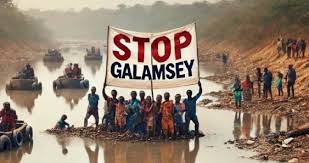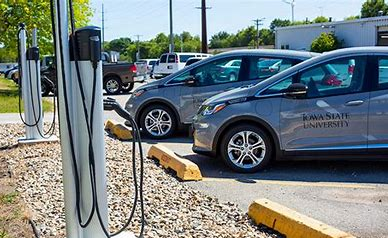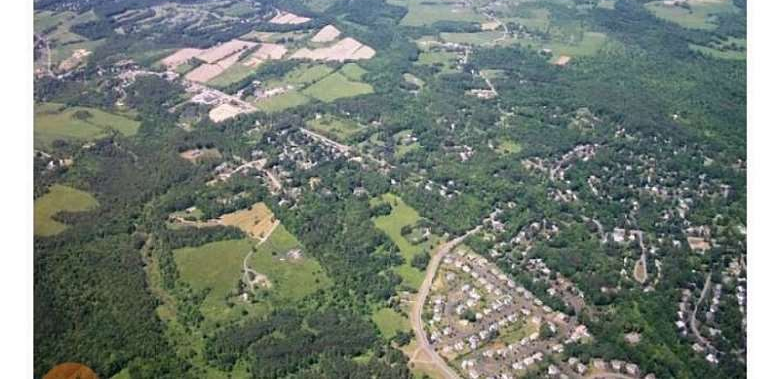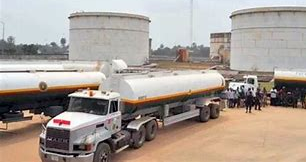Introduction
Illegal mining, or galamsey, continues to be a significant issue in Ghana, wreaking havoc on the environment, public health, and the economy. The University Teachers Association of Ghana (UTAG) has taken a bold stand, issuing an ultimatum to the government: if a total ban on galamsey isn’t imposed by the end of September 2024, a nationwide strike will follow.
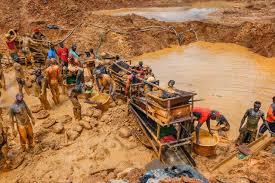
The Issue of Illegal Mining in Ghana
What is Galamsey?
Galamsey refers to illegal small-scale gold mining operations in Ghana. These activities are often carried out by individuals or small groups who operate without government authorization, causing severe environmental degradation and economic consequences.
Historical Context of Illegal Mining
For decades, illegal mining has been an ongoing issue in Ghana. Despite numerous attempts by the government to control it, galamsey continues to thrive due to a combination of poverty, corruption, and weak enforcement of laws.
UTAG’s Ultimatum to the Government
Key Demands by UTAG
In their strongly-worded statement, UTAG called for an immediate and total ban on illegal mining across the country. They believe that without drastic measures, Ghana’s future is at serious risk. The association also criticized the current state-led efforts to combat galamsey as ineffective and corruption-infested.
Why UTAG is Taking a Stand
UTAG’s concerns are not limited to academic interests. They are worried about the long-term damage that illegal mining poses to the country’s resources, public health, and educational institutions. The degradation of the environment directly affects local communities and future generations of students.
Failed Government Efforts Against Galamsey
Overview of Past Government Initiatives
Over the years, various governments have implemented operations like Operation Vanguard and Operation Flashout to tackle galamsey. These initiatives have relied on the military and other security agencies to crack down on illegal mining operations.
Criticisms of Operation Vanguard and Operation Flashout
Despite these efforts, UTAG describes them as “failed and corruption-infested militarized battles.” They argue that these initiatives have not addressed the root causes of illegal mining and have allowed the problem to persist, leading to widespread environmental destruction and public health crises.
Impact of Illegal Mining on Ghana
Environmental Degradation
One of the most concerning effects of illegal mining is the damage it causes to Ghana’s environment. Galamsey activities have destroyed over 2.5 million hectares of forest cover, leaving vast areas barren and polluted.
Loss of Forest Cover
Illegal miners often clear large areas of forest for their operations, leading to a significant loss of biodiversity. This deforestation not only disrupts ecosystems but also contributes to climate change.
Destruction of Water Bodies
Galamsey has also polluted many of Ghana’s rivers and streams, turning once-pristine water bodies into toxic wastelands. Harmful chemicals like mercury and arsenic are often used in the mining process, contaminating the water and making it unsafe for human consumption.
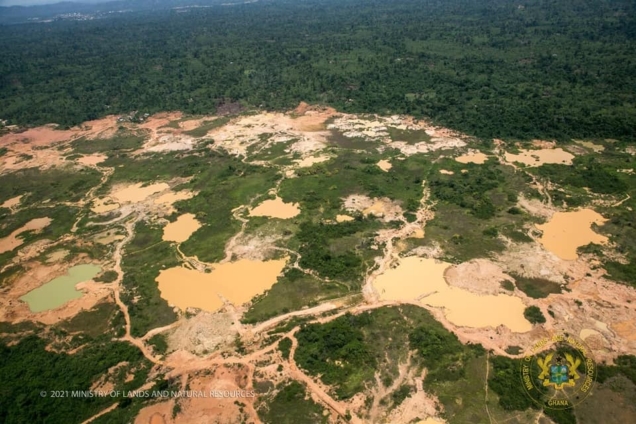
Health Implications of Illegal Mining
Rising Respiratory Diseases in Mining Areas
According to the Ghana Health Service, there has been a 35% rise in respiratory diseases in areas affected by illegal mining. This alarming statistic is attributed to the fine dust particles and toxins released into the air during mining operations.
Chemical Contamination from Mining Activities
Galamsey operations often involve the use of dangerous chemicals like mercury, which can seep into the soil and water. These chemicals pose significant health risks, including cancer, neurological disorders, and respiratory issues.
Economic Impact of Illegal Mining
The Cost to the Ghanaian Economy
Illegal mining is costing Ghana a staggering $2.3 billion annually. The destruction of farmlands, loss of water resources, and damage to the environment have long-term economic consequences that the country may struggle to recover from.
Decline in Cocoa Production
Cocoa, one of Ghana’s main exports, has also been severely affected by galamsey. UTAG reports a 45% decline in cocoa productivity this year due to illegal mining activities encroaching on farmland.
UTAG’s Concerns for the Future
Water Scarcity and the Threat of Water Imports
One of UTAG’s most chilling warnings is that if the current trajectory continues, Ghana may have to import potable water within six years. The continued pollution of water bodies makes this scenario all the more likely, posing a threat to the country’s self-sufficiency.
Long-term Damage to Agricultural Productivity
Illegal mining is also threatening the future of agriculture in Ghana. With farmland being destroyed and water bodies contaminated, the country’s ability to feed itself and generate revenue through agriculture is in jeopardy.
The Call for a Complete Ban on Illegal Mining
UTAG’s Rationale for Banning All Small-Scale Mining
In light of the continued failures of previous government interventions, UTAG has called for a complete ban on all forms of small-scale mining. They argue that only a total ban will prevent further damage to Ghana’s natural resources and public health.
The Failures of Militarized Operations
Militarized operations like Operation Vanguard have not succeeded in eliminating galamsey. Instead, these operations have often been marred by corruption, leading to inconsistent enforcement and little lasting impact.
The Role of Chemicals in Mining Pollution
Mercury, Arsenic, and Lead Poisoning
Chemicals used in illegal mining, such as mercury and arsenic, are highly toxic. These substances accumulate in the environment, poisoning water bodies, soil, and wildlife. Over time, they make their way into the food chain, affecting human health.
Contamination of Water Bodies and Soil
Mining activities leave lasting scars on the landscape. The chemicals used contaminate water bodies, making it difficult for communities to access clean drinking water. This also affects agriculture, as contaminated soil cannot support healthy crops.
Ghana Health Service Data on Galamsey
How Mining is Affecting Public Health
Data from the Ghana Health Service reveals a disturbing trend: as illegal mining increases, so does the incidence of health problems. From respiratory issues to neurological damage caused by chemical exposure, the health costs of galamsey are immense.
Statistics and Studies on Health Impact
Studies show that communities located near mining operations have higher rates of cancer, respiratory illnesses, and developmental disorders. This underscores the urgent need for action to protect public health.
UTAG’s Plan of Action
Constitutionally Available Tools for Compliance
UTAG has made it clear that they are ready to use “every constitutionally available tool” to ensure their demands are met. This includes joining forces with other labor unions and resorting to strike action if necessary.
Potential Strike Action
If the government does not take decisive action by the end of September 2024, UTAG has threatened to embark on a nationwide strike. This could disrupt the academic calendar and affect thousands of students across the country.
Support from Other Labour Unions
Collaboration with Other Unions
UTAG is not alone in its fight. Other labor unions have expressed their support, recognizing the importance of protecting Ghana’s natural resources and public health. The collective power of these groups could force the government to act.
The Significance of Collective Action
When labor unions unite, they have the ability to bring significant pressure on the government. By working together, UTAG and other unions hope to achieve meaningful change that will benefit the entire country.
What Happens if the Government Fails to Act?
Projected Consequences of Inaction
If the government does not impose a total ban on illegal mining, the consequences could be devastating. Continued environmental destruction, public health crises, and economic losses are all likely outcomes of inaction.
UTAG’s Next Steps
Should the government fail to act, UTAG has promised to escalate its actions. A nationwide strike could be just the beginning, with further protests and legal challenges to follow.
Conclusion
Illegal mining, or galamsey, is a serious threat to Ghana’s environment, public health, and economy. UTAG’s ultimatum to the government underscores the urgency of the situation. If action is not taken soon, the country may face irreversible damage to its natural resources and future generations. The time to act is now, and UTAG is leading the charge for a sustainable, healthy, and prosperous Ghana.
FAQs
- What is galamsey?
Galamsey refers to illegal small-scale mining activities in Ghana, often associated with severe environmental and health impacts. - Why is UTAG threatening to strike?
UTAG is calling for a total ban on illegal mining, citing the environmental destruction, economic losses, and public health crises caused by galamsey. - What are the health risks of illegal mining?
Illegal mining has led to a rise in respiratory diseases and chemical contamination from toxic substances like mercury and arsenic. - How much is illegal mining costing Ghana?
Illegal mining is estimated to cost Ghana $2.3 billion annually in environmental degradation, health costs, and loss of agricultural productivity. - What can be done to stop galamsey?
UTAG and other stakeholders are calling for a complete ban on illegal mining, stronger enforcement of laws, and a shift away from militarized operations.
